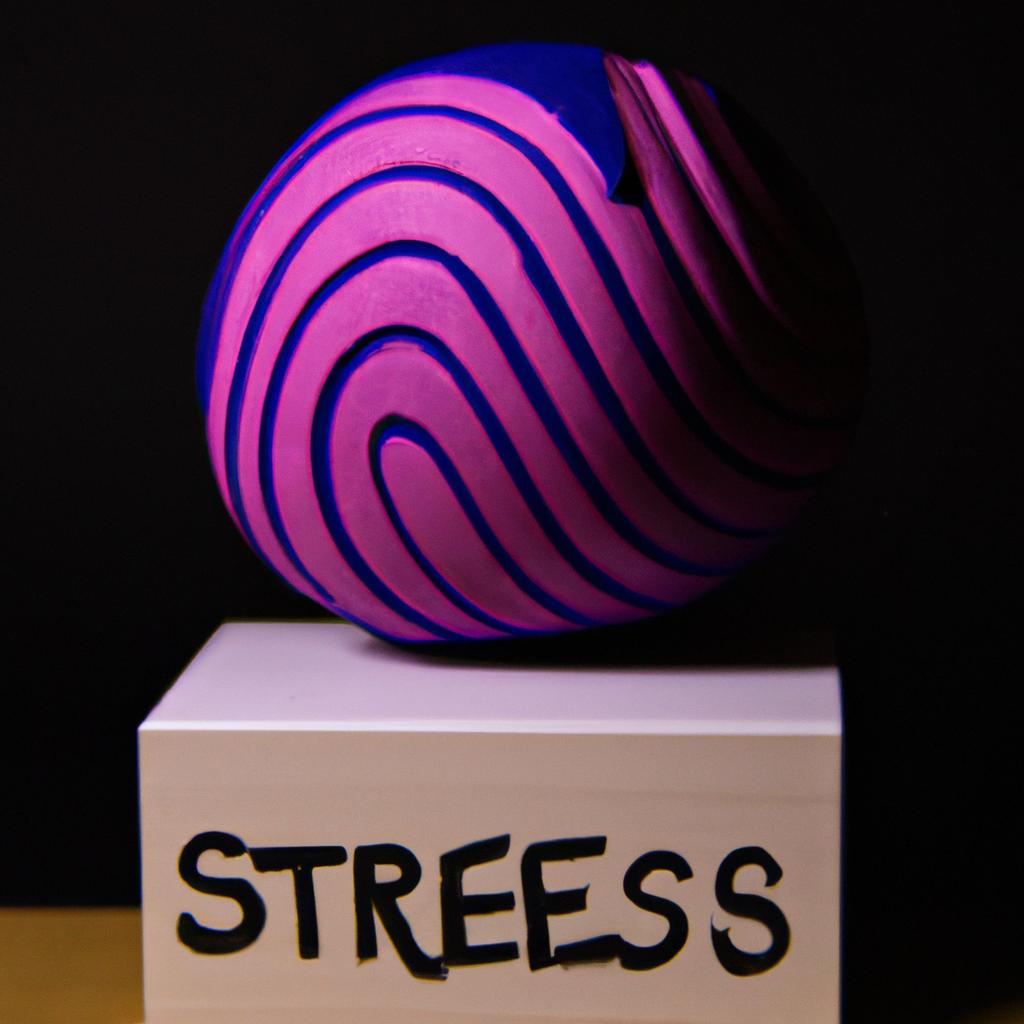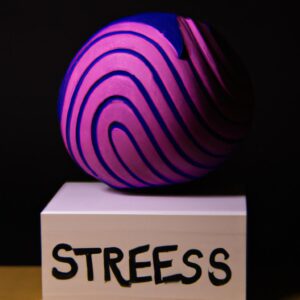What is Stress and Anxiety?
Stress and anxiety can be experienced by anyone, regardless of age or background. It is a normal part of life that we all encounter from time to time. Stress is your body’s natural reaction to the demands and pressures of everyday life, while anxiety is an emotion that you feel when you are worried, tense or afraid.
Both stress and anxiety can have both short-term and long-term physical and emotional effects on your body and mental health. That is why it is important to have effective coping strategies in place to deal with them.
Why is it Important to Cope with Stress and Anxiety?
Stress and anxiety can leave you feeling overwhelmed, exhausted, helpless and even paralyzed. It can also lead to physical and mental health problems, such as increased risk for heart disease, depression, and poor immune system functioning.
Having good coping strategies in place can help you manage stress and anxiety in the moment and prevent it from becoming overwhelming. Establishing healthy habits, such as exercise, healthy eating and getting adequate sleep, can also help reduce your stress levels and foster overall well-being.
By learning how to cope with stress and anxiety, you will be able to better manage difficult situations and live a happier, healthier life.
What Is Stress & Anxiety?
Stress and anxiety can be both difficult and confusing topics to address. It is important to understand the differences between them, as well as the common causes and symptoms associated with each.
Stress can generally be defined as a response to a particular demand or event in your life. It is a normal part of life, and is a natural reaction that people of all ages experience. Anxiety on the other hand, is a sense of fear and worry about what may happen in the future. It is characterized by a feeling of intense worry or fear, often accompanied by physical symptoms such as sweating or trembling.
Some of the more common causes of stress and anxiety include work and/or school related demands, money worries, relationship issues, family difficulties, and health concerns. It is important to note that everyone responds differently to stress and anxiety, and the intensity and intensity and duration may vary from person to person.
It is also important to be aware of the physical symptoms associated with stress and anxiety, as they can help you identify if a situation is creating undue strain in your life. Common symptoms can include headaches, muscle tension, difficulty sleeping, a racing heart, and shortness of breath. If these symptoms are present, it may be time to work on implementing strategies to cope with stress and anxiety.
Exercise to Reduce Stress and Anxiety
Exercise is one of the most beneficial activities for alleviating stress and anxiety. Being physically active releases endorphins in the brain, which are chemicals that make us feel better, reduce tension and help to calm our minds and bodies. Exercise is also a great way to clear your head and help you to feel more positive.
It is important to establish a regular routine when it comes to exercise. Aim to do some form of physical activity at least three times a week and try to make it enjoyable. Any type of exercise can help reduce stress levels and provide a distraction from worry and anxious thoughts. Some popular forms of stress relief exercises include:
- Running or jogging
- Weight-lifting
- Swimming
- Yoga
- Dancing
- Hiking or walking
- Tai-chi
Finding the type of exercise that you enjoy will help keep you motivated and make it more likely that you’ll stick with your routine. Exercising outdoors is also a great way to boost your mood and get some fresh air.
The key to reducing stress and anxiety with exercise is to make it a regular part of your routine. Even if it’s just a 30-minute walk around the block, getting started and making it a habit can have a huge impact on your mental health.
Healthy Eating to Improve Mental Health
Eating healthy is an important part of managing stress and anxiety. Eating a balanced diet that includes fruits, vegetables, whole grains, and lean proteins can help increase energy, reduce stress levels, and improve overall mental health.
Including foods high in Vitamin C, such as broccoli, oranges, and bell peppers, can provide anti-inflammatory benefits. It can also help to eat foods rich in Omega-3 fatty acids, such as salmon and walnuts, as they can help boost mental wellbeing.
It can be beneficial to try to maintain regular meal times throughout the day to ensure that you are providing your body with ample nutrition. Additionally, limit or cut out processed foods, too much caffeine, and alcohol since these substances can cause chaotic fluctuations in mood and energy levels.
By making sure to provide your body with the proper nutrition, you will be able to better manage stress and anxiety levels and give yourself the opportunity to take back control of your mental health.
Adequate Sleep
Getting enough sleep is vital to our mental and physical health. Not only does it help us to function at optimal levels during the day, but it can also help to ward off stress and anxiety.
The National Sleep Foundation recommends that adults should get 7 to 9 hours of sleep per night, and children and teenagers should get between 8 and 10 hours. However, it’s important to remember that everyone is different and individuals may need more or less sleep.
Creating healthy sleep habits can help us to fall asleep and stay asleep. Avoiding caffeine, sugar, and nicotine in the afternoon and evening can help prepare the body for a restful night’s sleep. Establishing a consistent sleep schedule, including waking up at the same time every day, will also help your body clock to maintain a regular sleep cycle.
You can also use relaxation techniques to help relax your body before bed. This could be anything from reading a book or listening to soothing music to taking a warm bath or meditating. Taking time to practice relaxation techniques can go a long way towards reducing your stress levels and helping you to drift off to sleep.
The Importance of Social Support for Managing Stress and Anxiety
Life can be stressful and anxiety-inducing at times. But, having a strong support system can make it easier to manage those worries. Connecting with supportive people can help to build a sense of community and belonging, which in turn can help reduce stress and anxiety.
When dealing with stressful and anxious moments, having someone to talk to can help to normalize the situation and help gain perspective. A good listener is invaluable during times of distress. Additionally, having someone to simply share experiences with can help to alleviate stress levels.
Strong social support networks can also help motivate people to take care of themselves. People who are surrounded by positive influences are more likely to make healthy choices, such as getting enough rest, engaging in regular physical activity, and eating nutritiously.
Having relationships that bring joy and connection, rather than hostility and toxicity, can vastly improve one’s mental and emotional wellbeing. Here are a few practical tips to help build relationships:
- Volunteer in your community or join clubs and organizations where you can meet people with similar interests.
- Spend quality time with friends and family. Make the effort to reach out to loved ones regularly.
- Be conscious of building relationships that foster mutual growth and understanding. Try and cultivate positive, reciprocal relationships.
- Connect with people online via social media, forums, and other outlets.
Developing strong social support systems can help people cope with stress and anxiety in a healthy way. Building relationships is an integral part of managing mental health, and can help to foster a sense of peace and well-being.
Mindfulness
Mindfulness is the practice of being in the present moment and focusing on your thoughts, feelings, and body. It’s a way of calming the mind and allowing yourself to be aware of how you’re feeling without judgement. Mindfulness isn’t about ignoring worries or problems, but rather taking the time to really focus on your inner self.
The term “mindfulness” has been used in many cultures for centuries. In the past, mindfulness was traditionally practiced through meditation, yoga and other practices. Now, mindfulness can be practiced in many forms, including walking, focusing on breathing, and even activities such as coloring or jigsaw puzzles.
The goal of mindfulness is to help you become more aware of your thoughts, feelings, and physical sensations. This doesn’t mean that you should only focus on positive things, but that you should be aware of both the positive and negative aspects of your life. By acknowledging both, you can work to shift your focus when needed and better manage stress and anxiety.
Being mindful of your thoughts and feelings can help you to cultivate inner calmness and awareness. When you take the time to pay attention to your thoughts, you can gain insight into how you’re feeling and manage your emotions accordingly. You can also use different breathing exercises to help reduce stress and relax your body. Mindfulness can give you an overall sense of peace and well-being.
Time Management
Effective time management can be one of the most effective ways to reduce stress and anxiety levels. It can help you to better manage your time, energy, and resources in order to make sure that important tasks are completed on time or ahead of schedule. Additionally, it can also help to enable you to be more organized and efficient, which can lead to better productivity and less stress.
To take control of your time, it is helpful to set realistic goals and attainable deadlines. Setting achievable goals can help to reduce stress related to unrealistic expectations, as you feel more confident that you can handle the workload. Additionally, try to make a list of tasks that need to be done each day, setting priorities where necessary. Breaking down large goals into manageable tasks can help to create a sense of accomplishment as you complete smaller and more immediate goals.
It can also be helpful to practice focus and concentration while doing tasks, as this will help you to maintain your attention and get more done in less time. Limit potential distractions, such as social media notifications or emails, while completing a task, so that you can avoid procrastination. Lastly, do not forget to prioritize self-care and relaxation, as it is equally important to give yourself some rest and practice healthy habits.
Anticipating Challenges
Stress and anxiety can come in a variety of forms, and it is important to be prepared for them when they arise. Preparation involves anticipating challenging moments that may occur and being proactive with positive thinking and visualizations. Positive thinking and visualization are two techniques that can help you identify upcoming stressful situations and provide solutions to manage them.
When engaging in positive thinking, focus on the potential benefits of a situation and avoid irrational thoughts. Take time to think through potential difficulties and how to respond to them in an effective way. Visualization involves creating a mental image of yourself dealing with the challenging situation. Visualize yourself feeling calm and in control despite any circumstances. This will help you have confidence in yourself and feel better prepared going into the situation.
By utilizing these skills, you can prepare and anticipate stressful moments ahead of time. With positive thinking and visualization, you can better equip yourself with self-confidence, hope and resilience to handle challenging situations.
Stress-Breaking Activities
It’s important to have quick and easy activities on hand that can help us manage our stress in the moment. These activities can be done anytime, anywhere, with no special equipment required. Some great examples of stress-breaking activities are:
- Deep breathing exercises: take slow, deep breaths, allowing your chest and belly to expand as you inhale, and exhale slowly and fully. Repeat the exercise for 3-5 minutes until you feel calmer.
- Progressive muscle relaxation: begin by tensing up the muscles in your feet, ankles, and legs and then hold for a few seconds before releasing. Move up your body (knees, abdomen, arms, hands, etc.) repeating the same process until you reach your neck and face.
- Yoga: there are many types of yoga poses that are specifically designed to help reduce stress and anxiety. You can practice them at home using a yoga mat and YouTube instructions.
- Writing: keeping a journal is a great way to release emotions and can offer relief from stressful situations. Free-writing, where you just write whatever comes to mind, can be particularly helpful.
No matter which method you choose, try to make it a regular part of your routine. Even a few minutes can make a difference in your overall stress and anxiety levels.
Professional Help
When dealing with stress and anxiety, it may be time to seek professional help. There are a variety of approaches to treating anxiety, including Cognitive Behavioral Therapy (CBT) and talk therapy.
CBT is a type of psychological therapy which focuses on the links between thoughts, feelings and behaviors, and helps to identify negative thought patterns. Talk therapy is a form of psychotherapy which involves talking about your feelings and experiences in order to gain insight into yourself and develop ways of coping.
These therapies can help to reduce stress and anxiety, and address any underlying issues which may be contributing to your distress. It is important to remember that stress and anxiety can be managed, and seeking help from a qualified professional can be an effective way to do this.
Conclusion
Stress and anxiety can be overwhelming and intimidating, making it difficult to make sense of day-to-day life. However, having effective strategies to recognize and manage these feelings can help improve emotional and mental health. Exercising, eating healthy, getting adequate sleep, and being mindful of oneself are all important elements of stress management. Social support and time-management are also beneficial for dealing with stress and anxiety. Taking regular breaks and engaging in stress-breaking activities can help relieve stress in the moment. If more intensive help is needed, seeking professional help is also an option. Through implementing these strategies, individuals can have better tools to cope with stress and anxiety.
comments: 0




